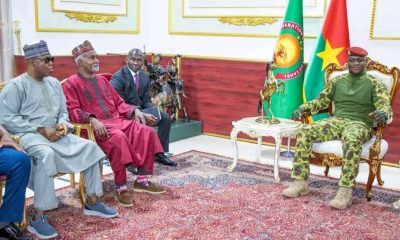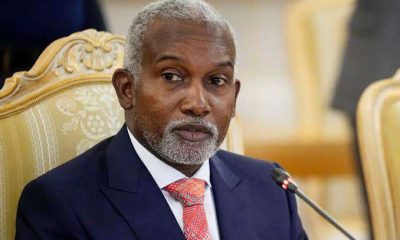Politics
FG faults U.S. travel advisory, accuses Washington of undermining Nigeria

The Federal Government has strongly criticised the latest travel advisory issued by the United States, warning its citizens against visiting Nigeria due to widespread insecurity, saying the move was unjustified and undermined the country’s global image.
The Minister of Foreign Affairs, Yusuf Tuggar, speaking through his Special Assistant on Media and Communication Strategy, Alkazeem Abdulkadir, condemned the advisory at the annual retreat of the Nigeria Reputation Management Group, organised by the Nigerian Institute of Public Relations in Abuja on Tuesday.
Tuggar argued that no country, including the United States, could claim to be entirely safe, adding that issuing such advisories without context contributed to the negative perception of Nigeria on the global stage.
The U.S. advisory, posted on the website of the U.S. Mission in Nigeria, warned American citizens against travelling to various Nigerian states due to terrorism, kidnapping, and violent crime. Specifically, it listed Borno, Yobe, Kogi, and northern Adamawa for terrorism and kidnapping; Bauchi, Gombe, Kaduna, Kano, Katsina, Sokoto, and Zamfara for kidnapping; and Abia, Anambra, Bayelsa, Delta, Enugu, Imo, and Rivers (except Port Harcourt) for crime and armed gangs.
“Kidnapping gangs have also stopped victims on interstate roads,” the advisory warned, adding that dual nationals and U.S. citizens perceived to be wealthy were often targeted.
But responding to the publication, Tuggar said it was “unfortunate” and lacked balance.
“There is a saying that if the lion does not learn how to write stories, the game will always glorify the hunter,” Tuggar said through Abdulkadir. “In 2024 alone, about 47,000 people died from gun violence in America, and it is projected that about 45,000 will die in 2025. Yet, we don’t routinely issue travel advisories against the U.S.”
He disclosed that Nigeria had previously responded to similar advisories from other countries. “A year ago, we issued a travel advisory against Australia for issuing one against us. We also did the same with the UK. In the ministry, we call this self-flagellation—where Nigerians laugh at or diminish themselves,” he said.
Tuggar emphasised the need for Nigeria to take control of its narrative in a global information space increasingly shaped by foreign perceptions.
“This is the time for media diplomacy to promote national unity, attract investment, strengthen international partnerships, and showcase Nigeria as a capable and responsible global actor under the leadership of President Bola Ahmed Tinubu,” he said.
Delivering the keynote address, veteran public relations expert, Modupe Adetokunbo, decried the deepening negative perceptions of Nigeria both internally and externally, attributing it to worsening socio-economic conditions.
“When you ask a Nigerian, ‘How are you doing?’ the response has evolved from ‘We thank God’ to ‘It is well,’” he said. “This is why we’re seeing mass migration, pent-up anger, capital flight, and widespread begging—now not just on the streets but in homes and institutions. People are no longer ashamed to beg.”
He also cited a viral video showing Nigerian police officers collecting handouts from foreigners as a symptom of a broader societal malaise.
Also speaking, the President and Chairman of Council of the Nigerian Institute of Public Relations, Dr Ike Neliaku, stressed the need for Nigerians to amplify their success stories and challenge negative global perceptions.
“The problem is not that we don’t have great stories to tell. We do—look at the Super Falcons, or the young girl who excelled in mathematics,” Neliaku said. “But we tend to undertell our own stories and overtell those of others.”
He warned that leaving the task of shaping Nigeria’s image to foreign actors would only deepen the country’s reputational challenges.
“People are being programmed to look down on Nigeria. We must disrupt this programming. I’ve always said, regardless of what metrics are used, Nigeria remains one of the greatest countries on earth,” he said.







